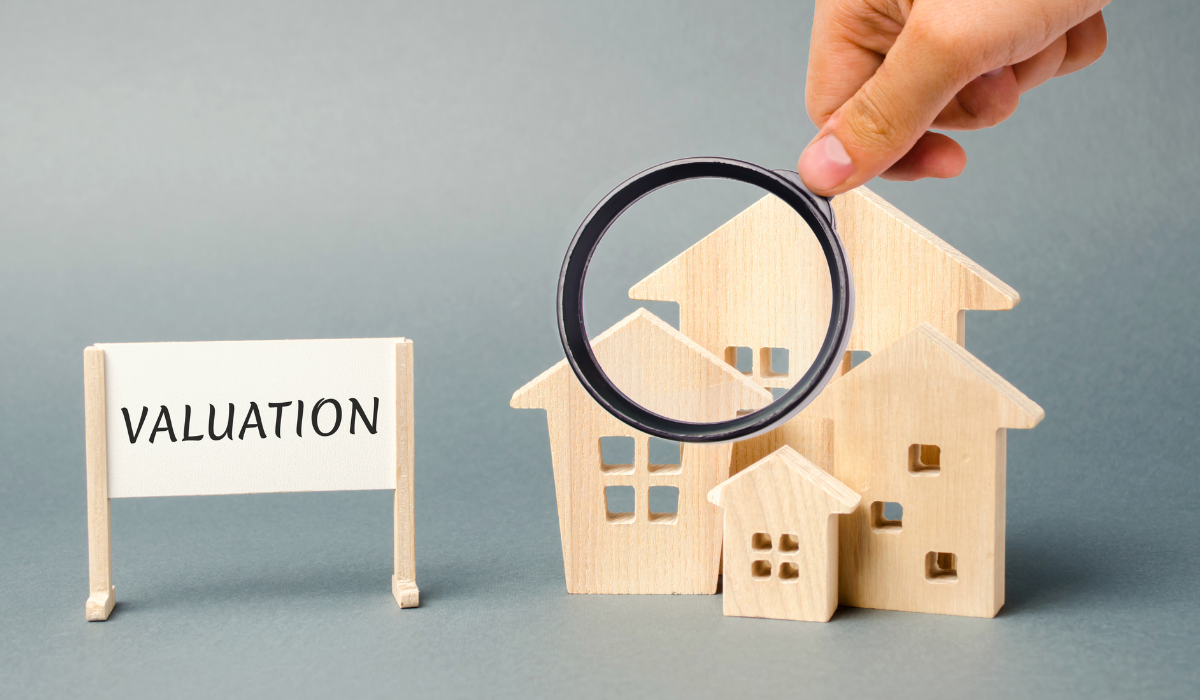Why You Need a Certified Estate Valuation
Understanding the Importance of a Certified Estate Valuation

When it comes to managing an estate, one of the most important steps is obtaining a certified estate valuation.
Whether you’re selling a home, planning for inheritance, or dealing with the legal aspects of an estate, having a property valuation is crucial for making informed decisions.
Estate valuation services play a pivotal role in ensuring that you understand the true worth of assets, allowing you to make smarter financial and legal choices.
In this article, we will explore the importance of a certified estate valuation and why you should consider it when managing your estate.
Understanding Estate Valuation
Estate valuation refers to the process of determining the worth of assets in an estate.
This includes property, personal belongings, investments, and other valuable items.
The purpose of an estate valuation is to assess the financial value of the estate at a specific point in time.
This process is typically required for various reasons, including settling disputes, determining taxes, distributing assets among heirs, and selling property.
While an estate valuation can be done by various professionals, certified estate valuation services ensure that the process is carried out according to strict standards and regulations.
These professionals are trained and accredited to provide an accurate assessment of the value of your property.
A certified estate valuation can offer you peace of mind, knowing that the value of your assets is determined by a trusted expert.
The Importance of Certified Estate Valuation
There are numerous reasons why you should opt for a certified estate valuation, including legal, financial, and personal considerations. Below are some key reasons to have your estate valued by a certified professional:
1. Accurate and Trustworthy Property Valuation
One of the main benefits of hiring a certified estate valuation professional is the accuracy and reliability of the valuation process.
A certified expert has the necessary experience, knowledge, and qualifications to evaluate properties and other assets accurately.
They use industry-standard methods to assess the worth of your property, which ensures that the valuation is fair and unbiased.
Whether you’re selling a home or distributing assets, having an accurate property valuation is essential for making well-informed decisions.
Without it, you risk underpricing or overpricing your property, which can lead to financial loss or missed opportunities.
2. Tax and Legal Compliance
Estate valuations are often required for tax purposes.
For example, when someone passes away, their estate may be subject to inheritance or estate taxes.
A certified estate valuation ensures that these taxes are calculated accurately, based on the true value of the estate’s assets.
This is crucial in avoiding penalties, fines, or legal challenges that could arise from incorrect valuations.
Moreover, the certified estate valuation process helps avoid potential disputes among heirs or beneficiaries.
If there is a disagreement about the value of specific items or the estate as a whole, having a professional valuation can serve as an impartial reference. Courts often require certified valuations for probate purposes, ensuring that all aspects of the estate are handled according to the law.
3. Estate Planning and Wealth Management
For those planning their estate, getting a certified property valuation is an essential step.
Estate planning involves organizing your financial assets and property to ensure that they are distributed according to your wishes.
Having a clear understanding of the value of your assets allows you to make more strategic decisions about your estate, ensuring that it is managed effectively during your lifetime and after your death.
A certified estate valuation also plays a critical role in wealth management.
If you're looking to divide your assets fairly among heirs, ensure that beneficiaries receive their fair share, or reduce estate taxes, an accurate property valuation is key.
By working with a professional appraiser, you can make more informed decisions about how to allocate your wealth and protect your assets.
4. Insurance Purposes
Whether you own a home, a commercial property, or personal valuables, having a certified estate valuation is important for ensuring that your property is adequately insured.
The value of your assets directly affects the amount of insurance coverage you need. If you don't have a proper valuation, you risk being either over-insured or under-insured, which can result in wasted premiums or insufficient coverage in the event of a loss.
For example, if your home has appreciated in value but you haven’t updated your insurance policy to reflect this change, you could face significant financial consequences if your home is damaged or destroyed.
A certified estate valuation helps you stay on top of these changes, ensuring that your property is properly insured.
5. Selling or Dividing Property
When selling or dividing property within an estate, a certified estate valuation is vital for determining the fair market value.
This ensures that everyone involved receives their fair share of the estate.
Without a professional valuation, disagreements can arise over the worth of the property, especially in cases where assets have sentimental value or where multiple heirs are involved.
In the event of a sale, having a certified valuation ensures that you can set an appropriate asking price.
If you’re selling an estate to liquidate assets for inheritance distribution or pay off debts, knowing the precise value of the property will help you maximize the sale price.
6. Preventing Fraud or Misrepresentation
Unfortunately, some individuals may attempt to manipulate the value of assets to their advantage.
This could occur in cases of inheritance disputes or property sales. By opting for certified estate valuation service, you protect yourself from fraud or misrepresentation.
A third-party professional offers an objective, impartial perspective on the value of the estate, ensuring that there is no room for dishonesty or manipulation.
Certified estate valuators adhere to ethical standards, providing you with transparency and confidence in the valuation process.
This gives you peace of mind, knowing that you’re receiving an honest and fair assessment of your property’s value.
How Certified Estate Valuation Works
The process of estate valuation typically involves a comprehensive assessment of the property in question.
Here's how the process usually works:
Initial Consultation: The estate valuator will meet with the client to discuss the goals of the valuation, the type of property being appraised, and any specific requirements.
Inspection: The valuator will inspect the property, taking into account its condition, location, and other relevant factors. For personal belongings or other items, the appraiser will assess their age, condition, rarity, and market demand.
Market Research: The valuator will conduct research to determine the fair market value of the property. This may include analyzing recent sales of comparable properties, reviewing historical pricing trends, and considering other economic factors that may impact the value.
Report: Once the valuation is complete, the valuator will provide a detailed report outlining their findings. This report will include an estimate of the property’s value, as well as a description of the methodology used to reach that conclusion.
Review and Finalization: If necessary, the valuator will discuss the findings with the client and make any necessary revisions before finalizing the valuation.
Conclusion
A certified estate valuation is an essential service for anyone managing an estate.
Whether you are dealing with property sales, inheritance, estate taxes, or asset distribution, having an accurate and certified valuation ensures that your decisions are based on the true worth of your property.
By hiring professionals who specialize in estate valuation services, you gain access to expert insights that can help you avoid costly mistakes and legal issues.
By investing in certified estate valuation, you protect yourself, your assets, and your loved ones.
From ensuring fair property valuation to reducing the risk of legal disputes and ensuring tax compliance, the benefits of certified estate valuation are numerous. Whether you're selling property, managing an inheritance, or simply planning for the future, having a certified estate valuation should be a top priority.
FAQ’s
What is a certified estate valuation?
Certified estate valuation is the process where a licensed professional determines the value of property and assets within an estate. This process ensures accuracy and compliance with industry standards, providing an unbiased assessment needed for legal and financial decisions such as taxes, inheritance, or asset division.
Why do I need a certified estate valuation?
A certified estate valuation is essential for accurately assessing property values. It is required for tax filings, inheritance planning, insurance adjustments, and distributing assets among beneficiaries. It also helps avoid disputes and ensures compliance with legal regulations surrounding estate management.
How is a property valuation conducted?
A certified estate valuator inspects the property, assessing its condition, location, and market trends. They use recent sales data and industry-standard methods to estimate the fair market value. A detailed report is then provided, outlining the valuation process and final estimated value.
Can a certified estate valuation help with tax planning?
Yes, certified estate valuations are critical for accurate tax calculations, including estate and inheritance taxes. Knowing the true value of the estate’s assets helps minimize tax liabilities and ensures compliance with tax regulations, potentially saving money in the long term.
What’s the difference between estate valuation services and a certified valuation?
While estate valuation services may provide a general estimate, a certified estate valuation is done by a licensed professional who adheres to strict industry guidelines. This ensures the valuation is legally recognized, accurate, and trustworthy for official use such as in legal or tax matters.











